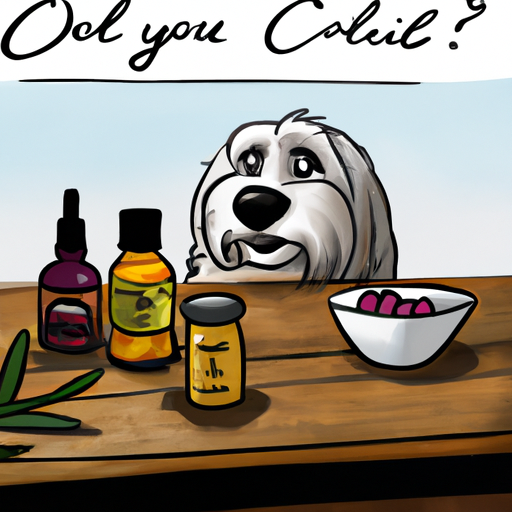As a pet owner, you may often wonder what oils are safe for your dog to consume. This guide will help you understand the benefits and risks associated with feeding your canine companion various types of oils. We’ll also provide tips on how to introduce these oils into your dog’s diet correctly.
Table of Contents
- Introduction to Oils for Dogs
- Benefits of Oils for Dogs
- List of Safe Oils for Dogs
- How to Introduce Oils to Your Dog’s Diet
- Frequently Asked Questions
Key Takeaways:
- Not all oils are safe for dogs to consume.
- Certain oils can provide health benefits for dogs, including improved skin and coat condition, enhanced digestion, and boosted immune system.
- Always introduce new oils gradually and observe your dog for any adverse reactions.
Introduction to Oils for Dogs
Just like us humans, dogs can also benefit from certain types of oils in their diet. Oils can provide essential fatty acids that dogs need for various bodily functions, including maintaining healthy skin and coat, promoting immune system health, and supporting digestion. However, it’s important to note that not all oils are safe for dogs to consume. Some oils, like essential oils, can be toxic to dogs and should be avoided.
Here’s a comprehensive guide on essential oils and dogs that you might find helpful.
Benefits of Oils for Dogs
Oils can offer various benefits to dogs, depending on the type of oil. For instance, fish oil can help reduce inflammation, improve coat health, and support heart health. Coconut oil, on the other hand, can improve digestion, increase energy levels, and promote weight loss.
You can learn more about the benefits of fish oil for dogs on this page.
List of Safe Oils for Dogs
There are several types of oils that are safe and beneficial for dogs to consume. Here are some of them:
- Fish Oil: Fish oil is rich in omega-3 fatty acids, which can help reduce inflammation and support heart health.
- Coconut Oil: This oil can help improve digestion, increase energy levels, and promote weight loss in dogs.
- Flaxseed Oil: Flaxseed oil is another great source of omega-3 fatty acids. It can help improve coat health and reduce inflammation.
- Olive Oil: Olive oil is rich in antioxidants and can help boost your dog’s immune system.
You can find more information about these oils and their benefits for dogs here.
How to Introduce Oils to Your Dog’s Diet
When introducing new oils to your dog’s diet, it’s important to start slowly. Begin with a small amount and gradually increase the dosage over time. This can help prevent digestive upset and allow your dog’s body to adjust to the new supplement.
It’s also crucial to monitor your dog for any adverse reactions, such as diarrhea, vomiting, or changes in behavior. If you notice any of these symptoms, stop giving the oil to your dog and consult with your vet.
For more tips on how to safely introduce oils to your dog’s diet, check out this article.
Frequently Asked Questions
Q: Can I give my dog cooking oil?
A: Cooking oils, like canola or vegetable oil, are not recommended for dogs. They can lead to obesity and other health issues due to their high fat content.
Q: How much oil should I give my dog?
A: The amount of oil you should give your dog depends on their size, weight, and overall health condition. It’s best to consult with your vet to determine the appropriate dosage.
Q: Can I apply oil directly to my dog’s skin?
A: Some oils, like coconut oil, can be applied directly to your dog’s skin to help improve coat condition. However, it’s important to do a patch test first to ensure your dog doesn’t have an allergic reaction.
Remember, oils can be a beneficial addition to your dog’s diet, but it’s crucial to choose the right kind of oil and introduce it gradually. Always consult with your vet before making any significant changes to your dog’s diet.
For more pet health tips, check out other articles on OneTopDog.



